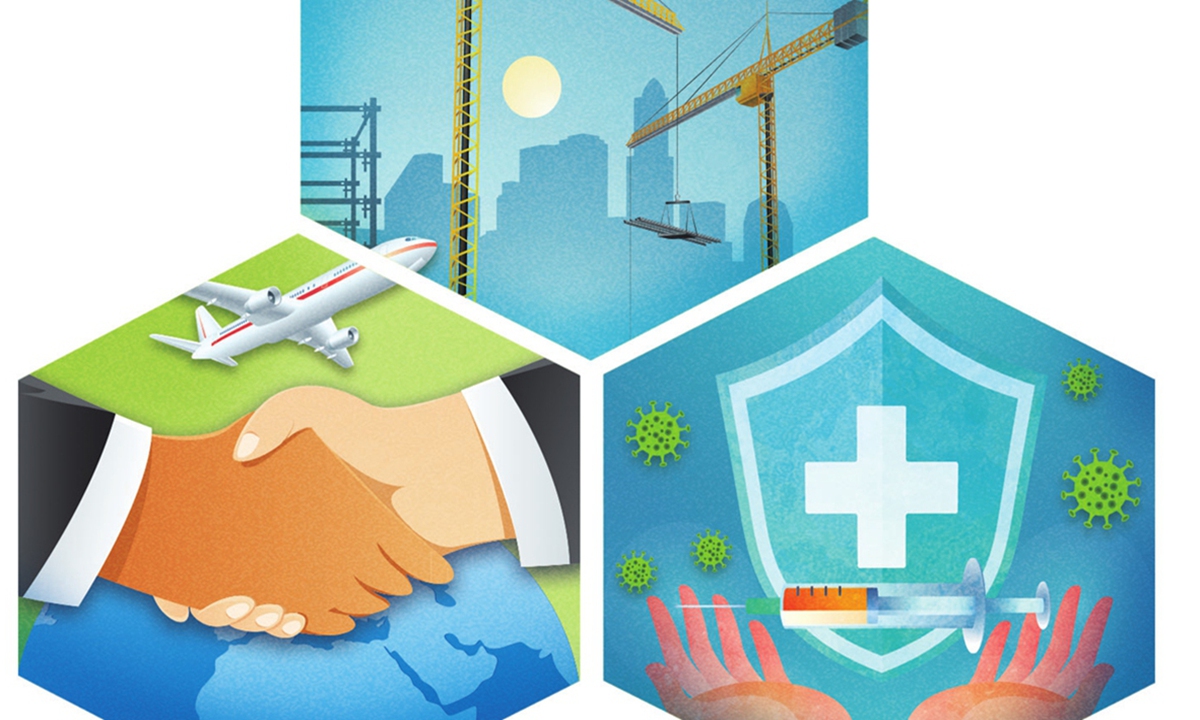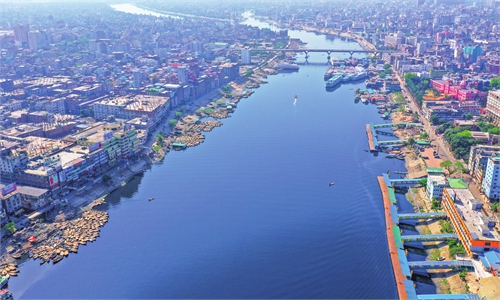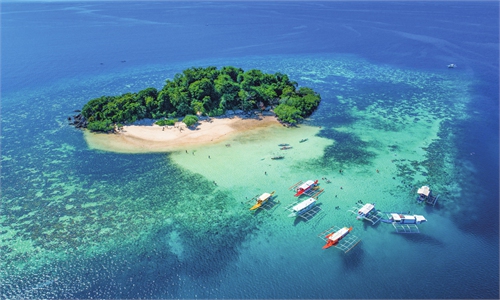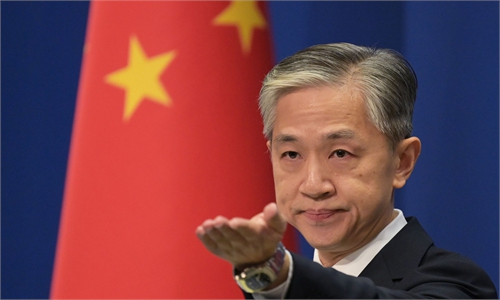
China-Africa ties Illustration: Liu Rui/GT
Over a year has passed since the European Union unveiled its Global Gateway initiative as an ambitious plan to support infrastructure globally, with a special focus to develop new infrastructure in developing countries such as those in Africa.The initiative is expected to mobilize an estimated $318 billion between 2021 and 2027 toward a new infrastructure drive that in theory will rival the China-proposed Belt and Road Initiative (BRI).
BRI is a mega-project of China which in the last decade has pumped billions of dollars into developing countries around the world and more so in Africa.
China's touch in Africa has left a trail of state-of-the-art roads, railways and ports significantly boosting both regional and foreign trade.
Over the last two decades, China and Africa have nurtured a partnership of mutual understanding and a unity of purpose underpinned by common interests.
To derail the trajectory of the China-Africa partnership and efforts to roll out modern infrastructure projects on the African continent, propaganda has been rife over China's interest in Africa.
But with the output of this partnership becoming clear with each passing year from visible infrastructural transformation in every part of the continent to record high bilateral trade, China-Africa relations have achieved milestones that are becoming harder to ignore.
Equally hard to ignore are efforts to establish initiatives to rival or outshine China. The path that China and Africa have jointly taken is causing discomfort and there is an ongoing drive to push China out of the way.
These efforts are disguised as development initiatives to accelerate growth and development in developing countries in Africa and elsewhere in the world, but are merely thinly veiled geopolitical rivalry.
As a foreign investment scheme, the EU's Global Gateway is meant to provide an alternative to BRI. However, based on the traction, results and the sheer magnitude of both technical and financial support that defines BRI, the shoes are just too big to fill.
On the African continent alone, the footprint that China has left is not only years in the making but can only work under a platform that promotes a sense of equality among partners.
China remains hands-off when it comes to politics, choosing instead to forge a sustainable relationship centered on accelerating growth and development.
The Global Gateway is defined as a values-based offer that reflects European social and environmental standards, but what about the values, social and environmental standards of developing countries who are expected to consume projects under the initiative?
When the Forum on China-Africa Cooperation (FOCAC) was established in 2000 as a multilateral partnership between China and African states, China and Africa meant business. FOCAC holds forums every three years to assess diplomatic ties and commercial interests.
FOCAC is a launching pad for successful projects including BRI leading to a contemporary scramble for Africa from powers in the West. But where is the equivalent of FOCAC between Africa and Western powerful nations?
In the absence of such common ground, the Global Gateway initiative is unlikely to succeed where China continues to excel. On the surface, there may seem to be a comparison between the Global Gateway initiative and the BRI.
But the two initiatives could not be more different. The EU will mobilize an estimated $318 billion between 2021 and 2027 to support the initiative. In just four years, 2014 to 2018, China alone has granted up to $400 billion in foreign loans. Additionally, in 2022, China signed BRI contracts whose worth is estimated to be $100 billion. These figures speak for themselves.
China's support to Africa significantly matches the infrastructural needs of the continent. Every year, the African continent needs approximately $150 billion to support investments in infrastructure.
The Global Gateway initiatives seeks to propel growth and development in areas such as boosting smart, clean and secure links in digital, energy and transport. Further, the project is expected to strengthen health, education and research system globally and more so in developing countries.
China is already shining in these areas and has been on track to meet gaps in these very sectors, addressing Africa's most pressing needs in the last decades. As an ambitious plan to develop two new trade routes to connect China with the rest of the world, BRI has given Africa a front row seat and the benefits will be immense.
Bilateral trade between China and Africa increased by 35.3 percent in 2021 and goods exported from Africa to China increased by 43.7 percent in the same year. At the moment, there is no other initiative, underway or in the pipeline, that can match such results as it would take many years and a shift in the manner in which the West interacts with Africa.
The author is a Kenya-based journalist. opinion@globaltimes.com.cn



